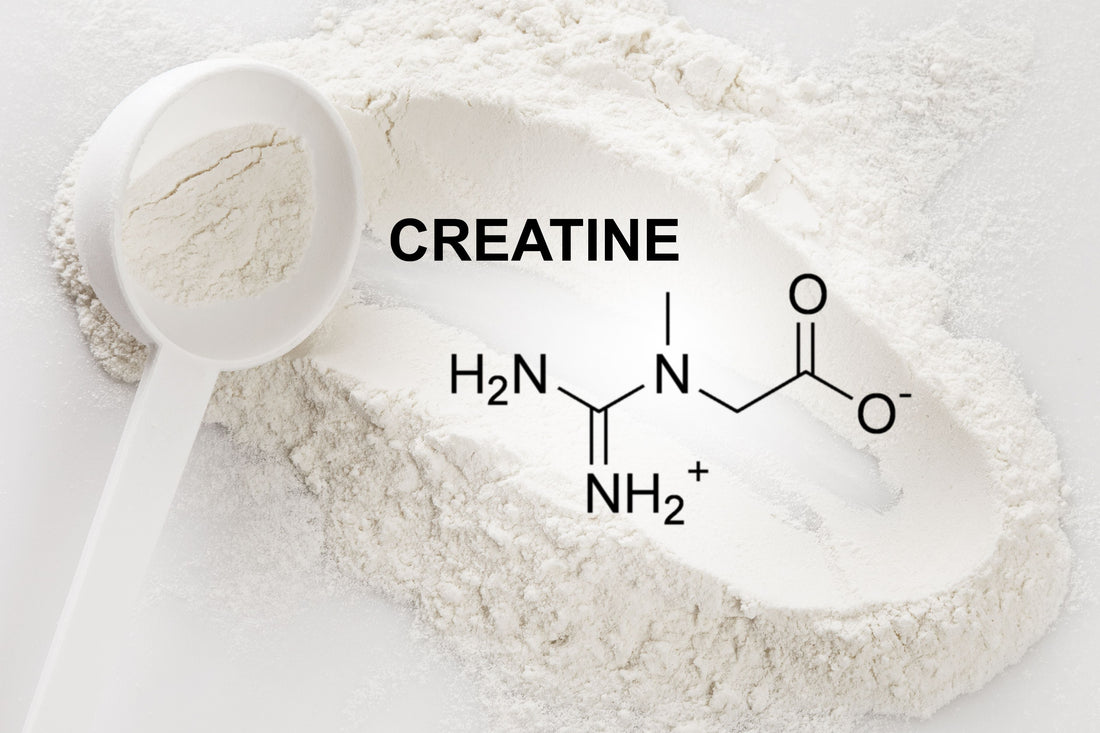
Does Creatine Harm Your Kidneys?
Share
One of the longest-standing fears about creatine is that it might damage your kidneys. Many people still worry that using creatine supplements—even in normal amounts—can lead to kidney problems over time. This concern has led to confusion, especially among athletes, fitness enthusiasts, and parents of teens who work out.
So, let’s settle it: does creatine actually harm your kidneys? Here’s what the science says.
Understanding Creatine and the Kidneys
Creatine is a natural compound your body makes from amino acids. It helps supply energy to your muscles, especially during short bursts of intense activity like sprinting or weightlifting. You can also get it from food (mainly meat) or supplements.
When your body uses creatine, it breaks it down into a waste product called creatinine, which is removed from your blood by your kidneys and passed out in urine. This is completely normal and part of how your body works.
Doctors often measure creatinine levels in your blood to check how well your kidneys are working. But here’s where the confusion begins.
Why the Confusion?
Some people see higher creatinine levels in blood tests after taking creatine supplements and think it means kidney damage. But that’s not necessarily true. Increased creatinine can happen simply because you're taking more creatine, not because your kidneys are failing.
Also, people with more muscle naturally have higher creatinine levels. So, someone who lifts weights and takes creatine might have slightly higher creatinine—but still have perfectly healthy kidneys.
What Does the Research Say?
Here’s the good news: over 20 years of research shows that creatine does not harm the kidneys in healthy people who use it properly.
- Multiple long-term studies have looked at athletes and non-athletes taking creatine at recommended doses (usually 3–5 grams per day). They found no signs of kidney damage.
- Even studies that lasted several months or more found no harmful changes in kidney function.
- One early case report in 1998 linked creatine to kidney problems, but it involved a person who already had kidney disease and was taking medication. That report was later criticized for ignoring important facts and doesn’t apply to healthy individuals.
Thousands of people have used creatine safely for years. If creatine caused kidney damage, we would expect to see a pattern of harm by now—but no such evidence exists.
Is Creatine Safe for Everyone?
While creatine is safe for most healthy people, there are some things to keep in mind:
- If you already have kidney disease, you should talk to your doctor before taking any supplement, including creatine.
- Don’t exceed the recommended dose. More is not better. Stick to 3–5 grams per day unless directed otherwise.
- Stay hydrated while using creatine, as proper hydration supports kidney function.
Key Takeaways
- Creatine does not cause kidney damage in healthy people when taken at normal doses.
- Slight increases in creatinine are normal and don’t always mean kidney problems.
- Long-term studies confirm creatine’s safety for kidney health.
- If you have pre-existing kidney issues, always consult a doctor first.
- Using creatine the right way—moderately and consistently—is key.
Final Word
The myth that creatine harms your kidneys has been around for decades, but science doesn’t support it. Creatine is one of the most studied supplements in the world, and it has consistently been shown to be safe for healthy users.
If you’re exercising regularly and want to improve strength or performance, creatine can be a great addition to your routine—without putting your kidneys at risk.
